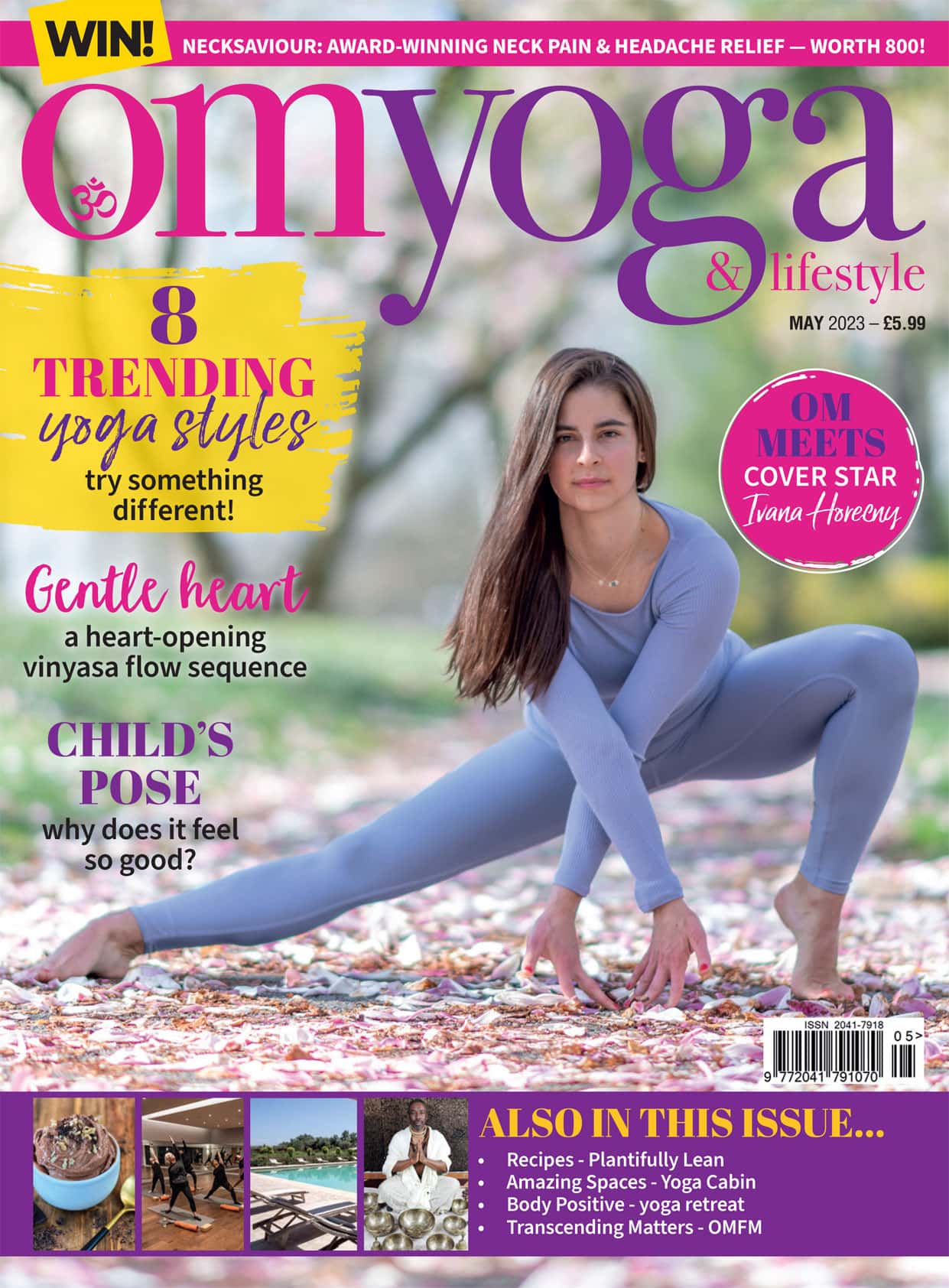
Empowered rest
Taking time out to rest can dismantle the structures and expectations which deplete us and empower us to positively change the course of our lives. By Lauren Bloxham
Whether it’s good for us or not, we all function within the same broad structures that our society imposes. That may be our working hours or week, or the expectations associated with the labels we give ourselves (parent, partner, employee, teacher, leader), or perhaps we are deeply shaped by the expectations that come with religion or gender.
Our humanity may be moulded in many ways, some of which may feel life enhancing, and some may feel limiting. We use structure and expectation as a measure for success, health, a way to judge, to bond, or to separate. Very often, questioning the structures that shape us will lead us to feel vulnerable; whether those structures and expectations are good for us or not, they may still feel safe.
Although we share experiences, workplaces, or yoga classes, we each give and receive something unique and different to those circumstances. Each of us thrives on different aspects of living at different times of our life. Among us we are pregnant, in menopause, living with chronic health conditions, recovering from a virus, caring for sick family, in grief, in celebration. We are new parents and grandparents, we are living and dying, we are calm, anxious, depressed, and joyous, we are religious and agnostic, rich and poor, we are spiritual and cynical, and we are so much more in between.
We are all having such varying experiences of humanity. Some we’ll relate to with each other, others we won’t even begin to fathom about one another; this is what makes humanity so rich and diverse, so wondrous and so terrifying. Regardless of what phase of life we are in, or what we are going through personally, we are all still functioning within the same structures and expectations that society sets, and often without questioning whether those structures and expectations are truly meeting our needs.

Understanding our needs
Empowering ourselves to know what it is we need can help us to advocate on our own behalf. When we recognise and understand our needs, we can discern what is good for us, what is nourishing and what is depleting. So many of us work from the assumption that we’re failing, or that we’re not enough. So many of us assume that our discomfort is our own fault. But what if it’s the imposed structures and expectations around us that are failing us, and that are not enough? The discomfort we feel can be a valuable signpost towards what it is we deeply, truly need. Recognising it can lead us to being curious about ourselves, and this curiosity or ‘svadhyaya’ can bring us closer to holding our own power and meeting our own needs.
To recognise a deep need, we need to get deep inside
When we’re consumed and controlled by day-to-day responsibilities and obligations, what’s expected of us and what we expect of ourselves, then there’s barely any time to reflect…to move deep within and to question our exhaustion, our discomfort, and our lack of power in affecting change.
Carving out time for rest and reflection is necessary for all of us in maintaining our wellbeing, in just the same way we know that moving well and eating well is. There isn’t a one size fits all approach though, and resting is not a box-ticking exercise.
How to rest and reflect well
We’re not taught to advocate for ourselves when it comes to rest, and often a sense of needing permission can be so deeply engrained within us that we overlook our needs in order to serve our expectations.
When we value action so highly, and doing or responding immediately is habitual, it’s hard to feel that rest and reflection is valuable time spent. In fact, it can lead us to feeling guilty for taking it, as though it’s a luxury we don’t truly deserve. It may even feel difficult or unsafe to rest, particularly if we have been experiencing chronic stress. But we each need rest, recovery, and reflection for a unique and diverse range of reasons, and at different times in our lives.
In her 2021 TED talk Dr. Saundra Dalton-Smith explored the seven types of rest that every person needs:
Physical Rest: More sleep, naps, deep breaths, relaxation.
Mental Rest: Music, meditation, silence.
Emotional Rest: Offloading baggage, talking to a good listener, therapy.
Social Rest: Catching up with friends or time by yourself.
Creative Rest: Reading a book, taking a walk in nature.
Spiritual Rest: Doing things that give you a sense of meaning and purpose.
Sensory Rest: Turning off devices and screens, find the quiet.
Dr. Dalton-Smith goes on to explore that when we can identify our rest deficit, we can administer the appropriate type of rest we need.

Finding empowered rest
Come to a comfortable laying or seated position. Place the left hand on the heart and the right hand on the belly. Close the eyes and invite forward three deep, slow breaths. As you breathe, settle into the support of the earth and allow the inner awareness to withdraw from the world outside and rest at the heart space. Awaken a sense of thankfulness within the heart for anything, however simple, that comes to mind. Thankfulness softens the heart and allows our inner wisdom to pour forward.
Let awareness take in the physical body, its sensations and feedback from the tips of the toes to the crown of the head. Listening this way can help us to understand the condition of the physical body and its needs for recovery, rest, stillness, movement, or sleep.
Awareness can take in the moving breath, the bridge between the inner and outer experiences, moving us towards the innate pace and rhythm of our lives…breath awareness can clear space to take in the qualities of the mind. Thoughts will inevitably arise and fall away; like weather, they’re sometimes heavy and dark, sometimes light and bright, sometimes invasive or persistent. The qualities of our minds can lead us to feeling and understanding our need for working through difficult situations and strong emotion. Our needs for support, to talk, to share and to negotiate.
Bring the awareness back to the breath, the innate pace and rhythm that is unique to you. Take in the heart space again and ask the question: ‘What is my deepest need?’ Let the heart take its time to answer. Sometimes answers arise in the form of words, feelings, images, or memories. Often, they come with an awakening of the exact rest medicine we need. The word ‘peace’ awakening the feeling and memory of peace. An image of laughing with friends awakening the joy of being social with the people we love. The feeling of space allowing us to take a deeper breath and surrender deeper physical tension. The memory of a time or place may lead us towards a feeling that we need more of. Spending time being curious about ourselves, our bodies, our minds, our breath, how we feel and the space we take up is rest in itself. It’s one of the greatest gifts we can offer ourselves.
The awakening of the heart’s medicine is as unique and attuned to our individual needs as can be. It’s the very first step in carving out a courageous path towards empowered rest, leading us to make discerning choices about how we spend time, where, who with and when we need to withdraw in order to strengthen our spirits and find deep and lasting respite.
Practice yoga with Lauren Bloxham online at: blackdogliving.com or connect on Instagram @blackdogliving


